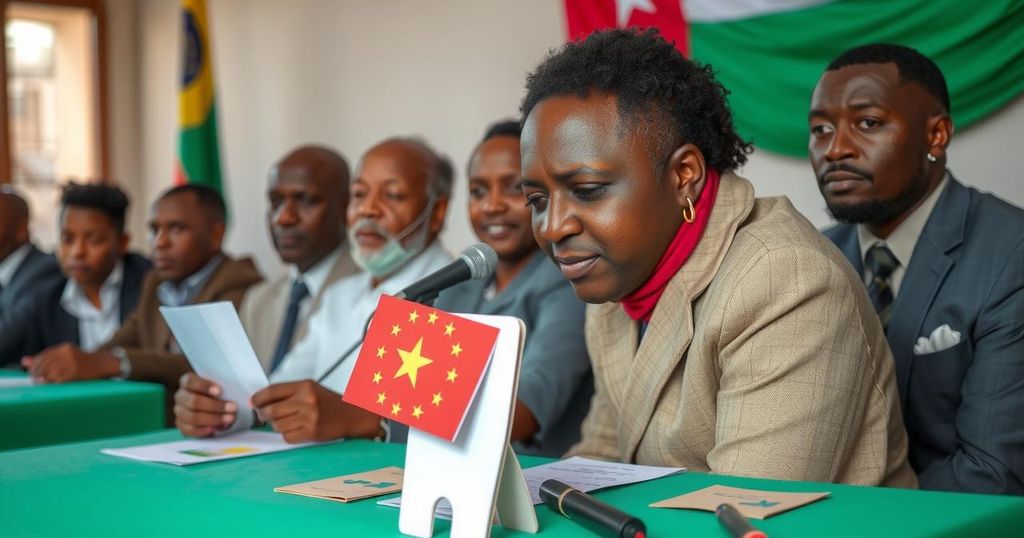Comoros Parliamentary Election Under Opposition Boycotts and Allegations of Authoritarianism

The Comoros held a parliamentary election that was boycotted by several opposition groups, who accused President Azali Assoumani of authoritarianism and election integrity issues. Given previous criticisms of the electoral process, low voter turnout is anticipated. Assoumani’s presidency, characterized by political repression, has sparked growing discontent among the populace, echoing concerns from past elections.
The Comoros held its parliamentary election on Sunday amid a boycott by certain opposition leaders. These officials accused President Azali Assoumani and his ruling party of leaning towards authoritarianism and raised alarms concerning the election’s integrity. Approximately 330,000 registered voters from a population of 850,000 were eligible to participate in the election designed to fill 33 seats in the legislature, yet opposition parties anticipated a low voter turnout due to widespread disillusionment with the democratic system.
In the previous parliamentary election of 2020, Assoumani’s party and coalition allies secured 20 out of 24 contested seats, leading to accusations of the election being a “masquerade” and not a fair democratic process. President Assoumani cast his vote in his hometown of Mitsoudjé on Grande Comore. His recent presidential election win in 2022 also faced claims of being fraudulent, inciting violent protests in the streets.
The Juwa Party, led by former President Ahmed Abdallah Sambi, was among the opposition groups participating in the boycott, continuing their refusal from the last parliamentary election held in 2020. The nation, an archipelago located in the Indian Ocean, has experienced a series of military coups since gaining independence from France in 1975, with Assoumani having initially seized power in 1999 through a coup.
Despite stepping down in 2006 and returning to power in 2016, President Assoumani has since contested and succeeded in multiple elections, utilizing constitutional amendments instituted in 2018 to eliminate term limits. According to the Africa Center for Strategic Studies, Assoumani’s tenure has been characterized by growing political repression and a lack of competitive elections. In addition, officials confirmed the election would proceed despite the looming threat of Tropical Cyclone Dikeledi affecting nearby regions.
The Comoros comprises three islands located near the east coast of Africa, close to Madagascar. The nation’s political landscape has been tumultuous since achieving independence from France in 1975, having endured numerous military coups. President Azali Assoumani’s ascent to power in 1999 marked the beginning of a powerful, albeit controversial, leadership. Following a restructuring of governmental rules in 2018, Assoumani has been able to maintain his presidency beyond standard term limits, leading to accusations of erosion in democratic practices in the Comoros.
The recent parliamentary election in Comoros, boycotted by opposition parties, underscores the ongoing political tensions and challenges to democracy in the archipelago. Accusations of authoritarian governance and electoral fraud persist, reflecting the broader climate of discontent with the current regime. As the nation navigates this tumultuous political environment, the implications for its democratic processes and governance remain critical to observe.
Original Source: www.seattletimes.com







